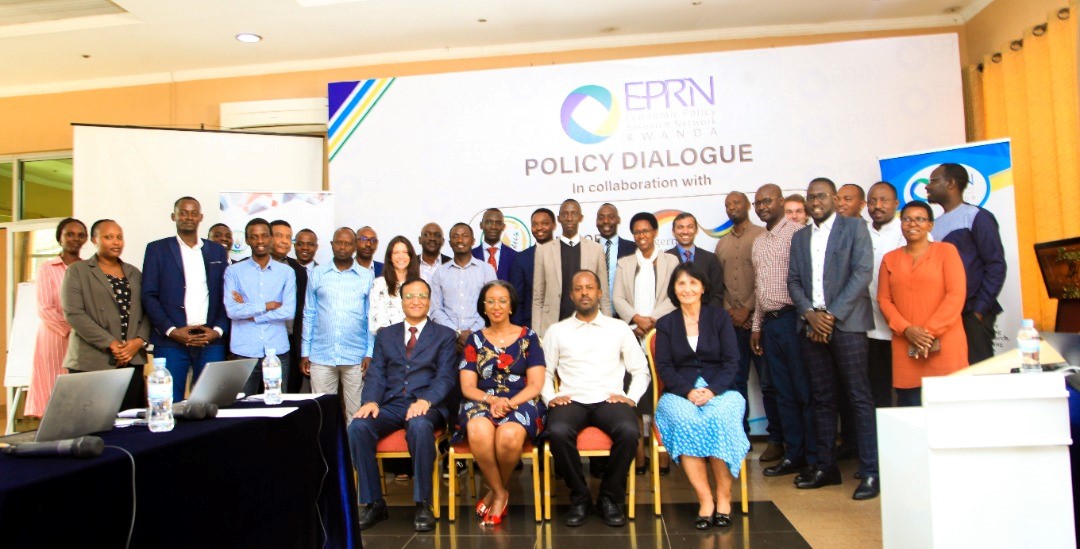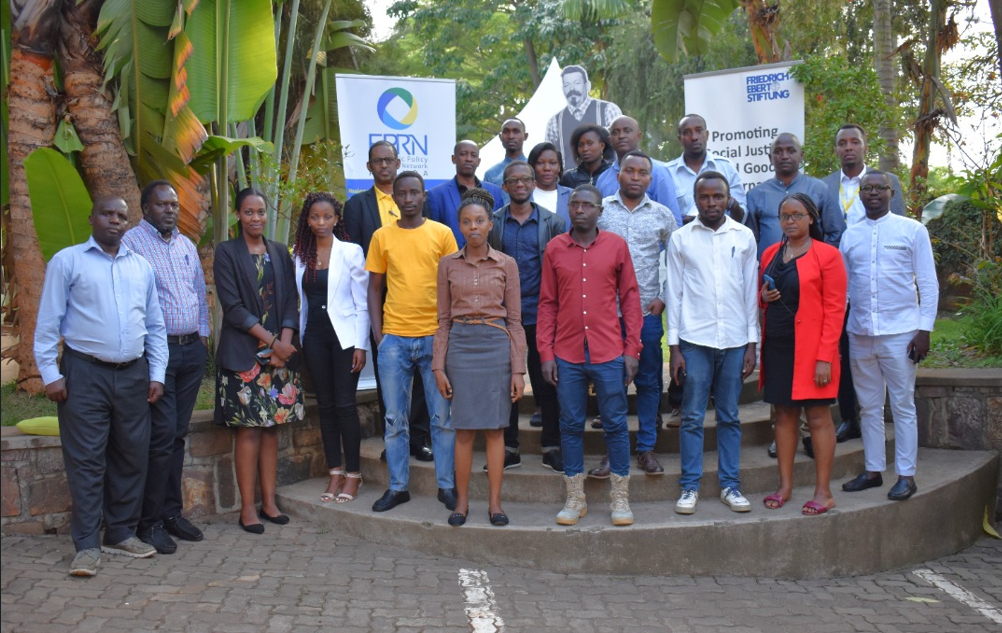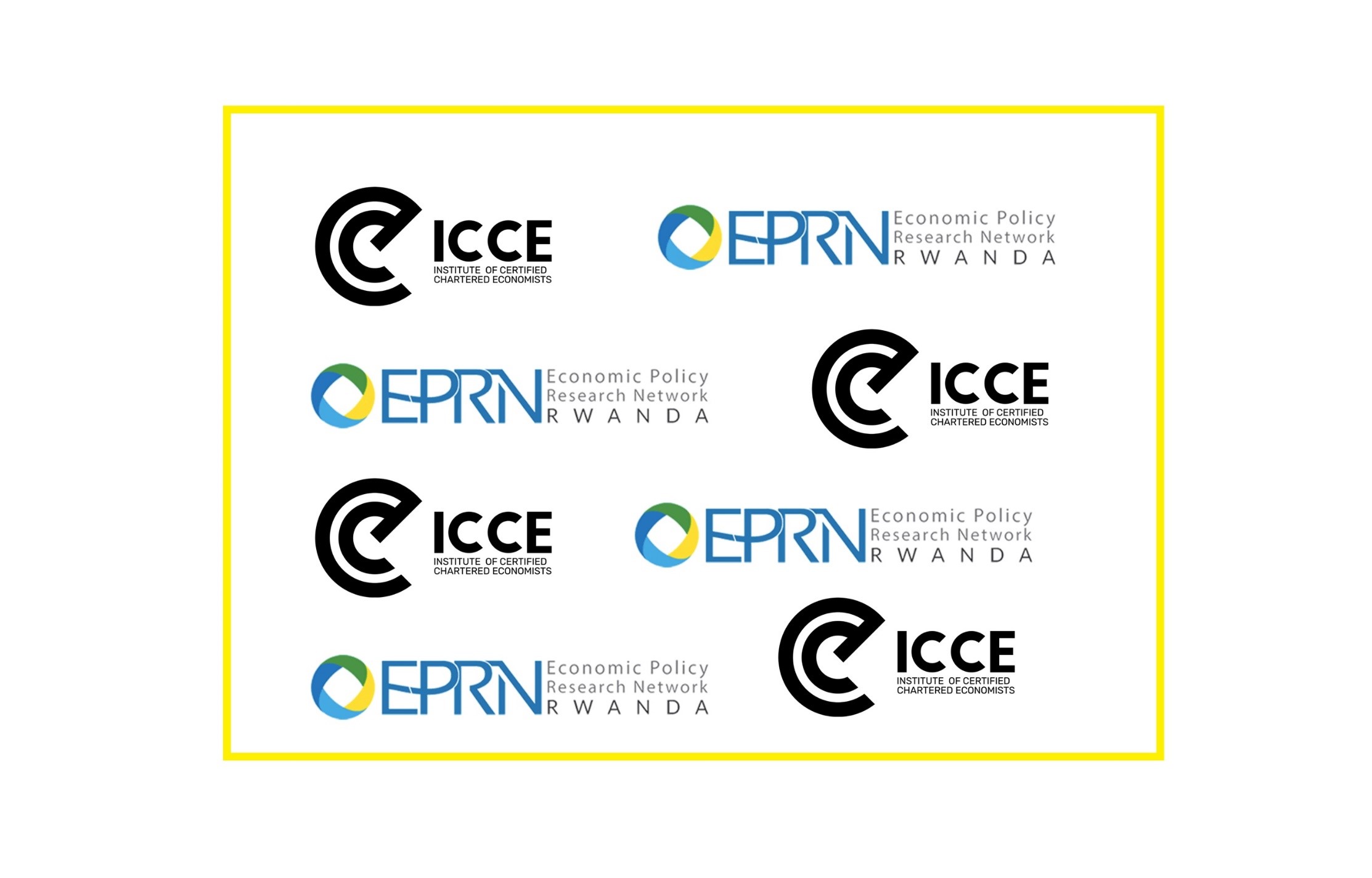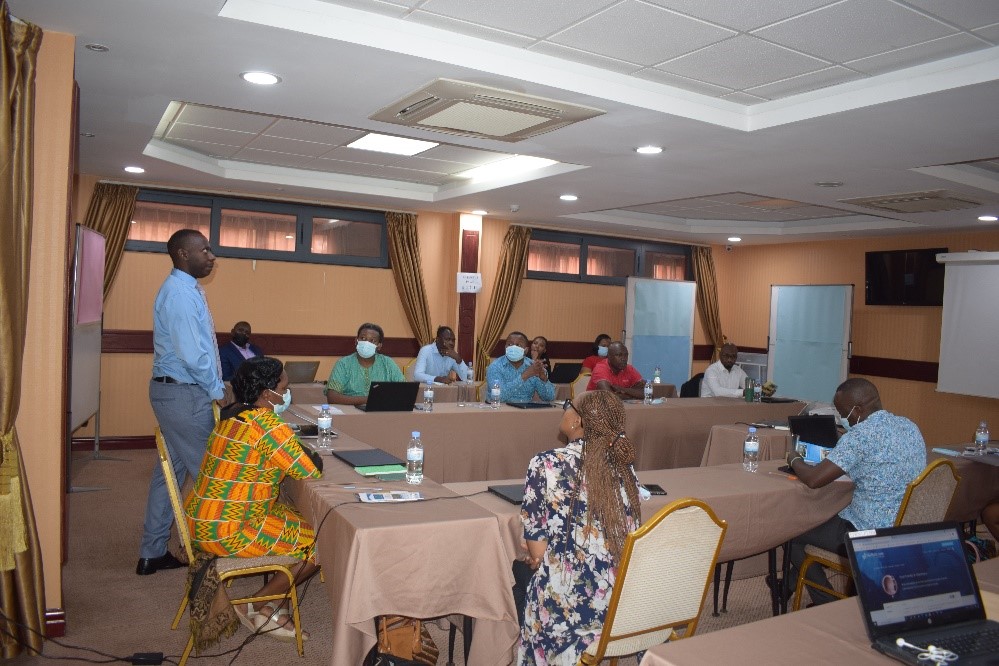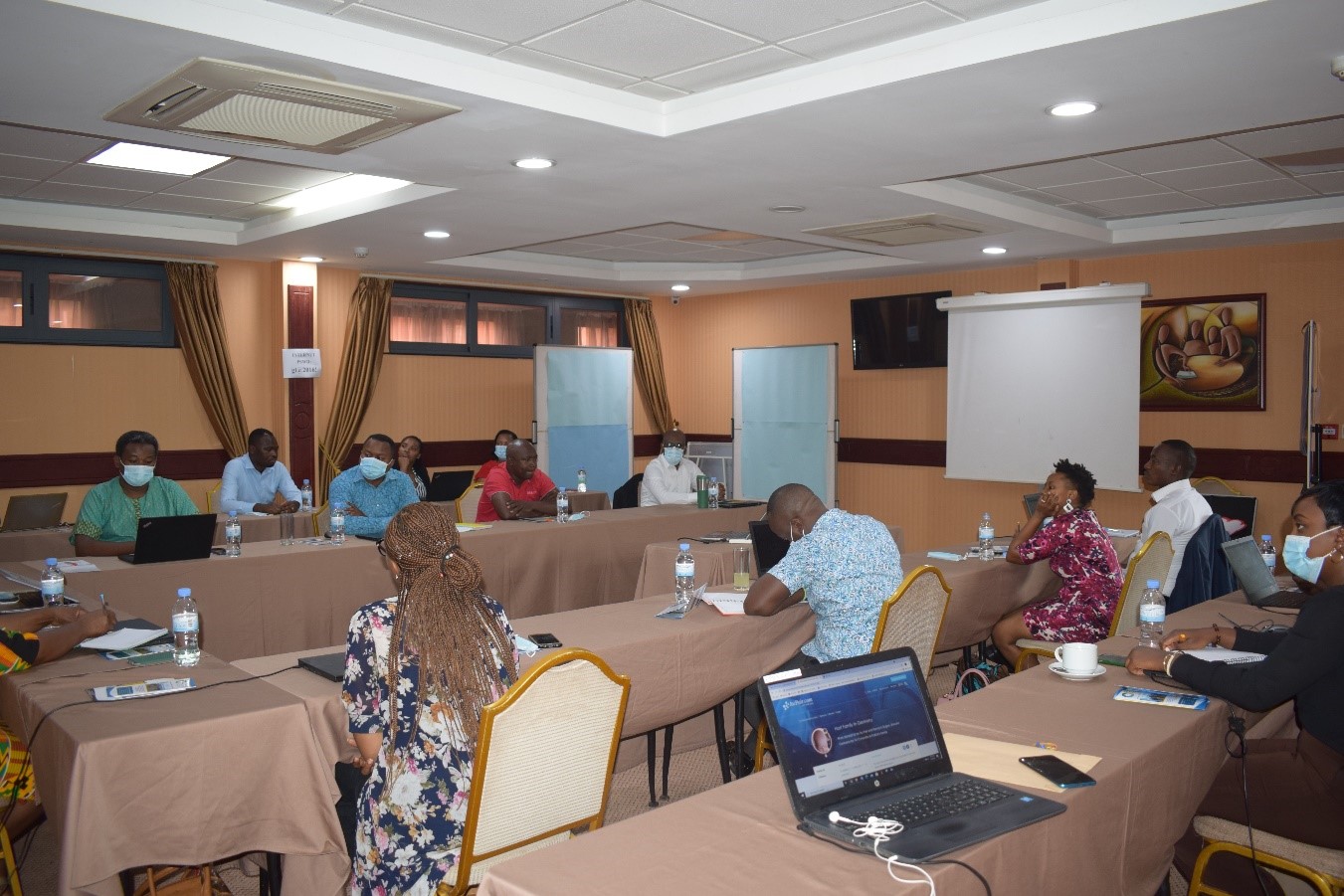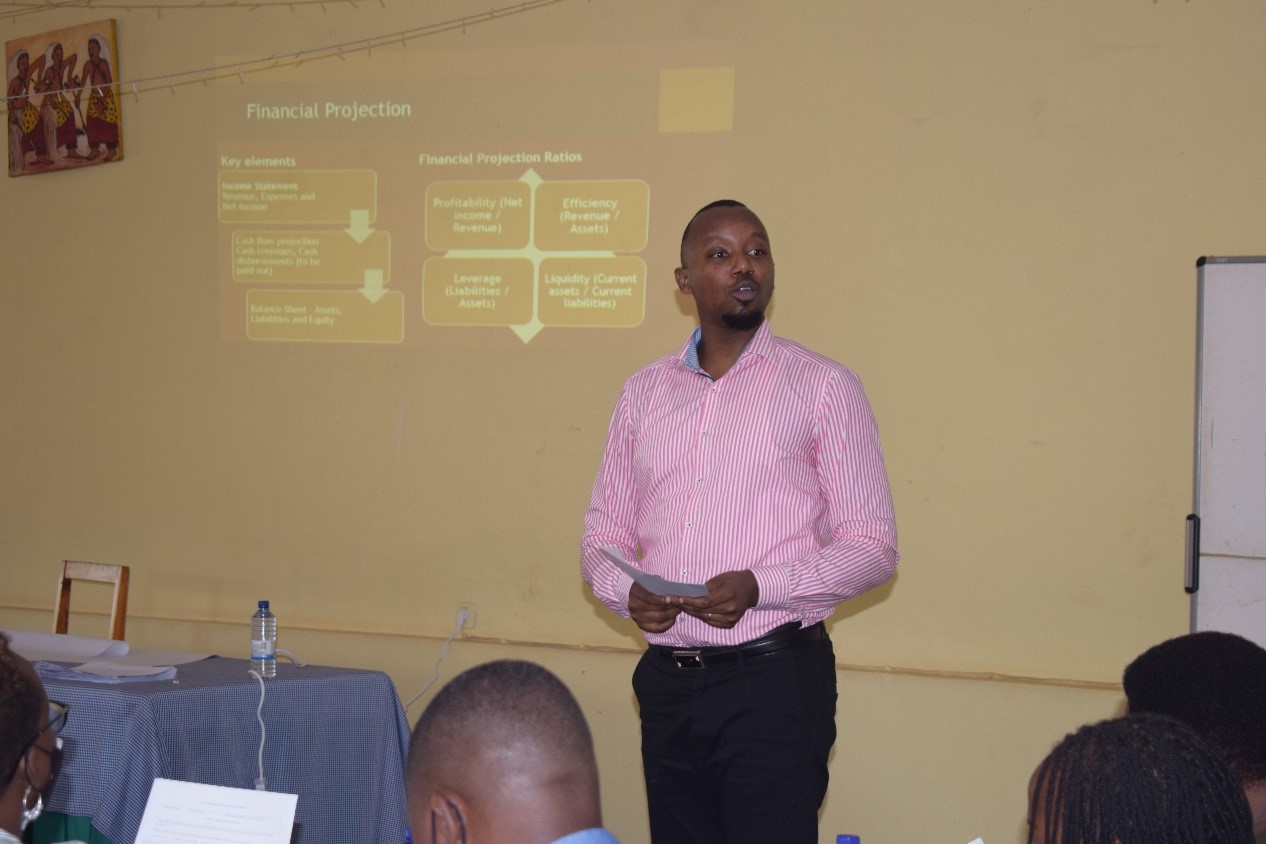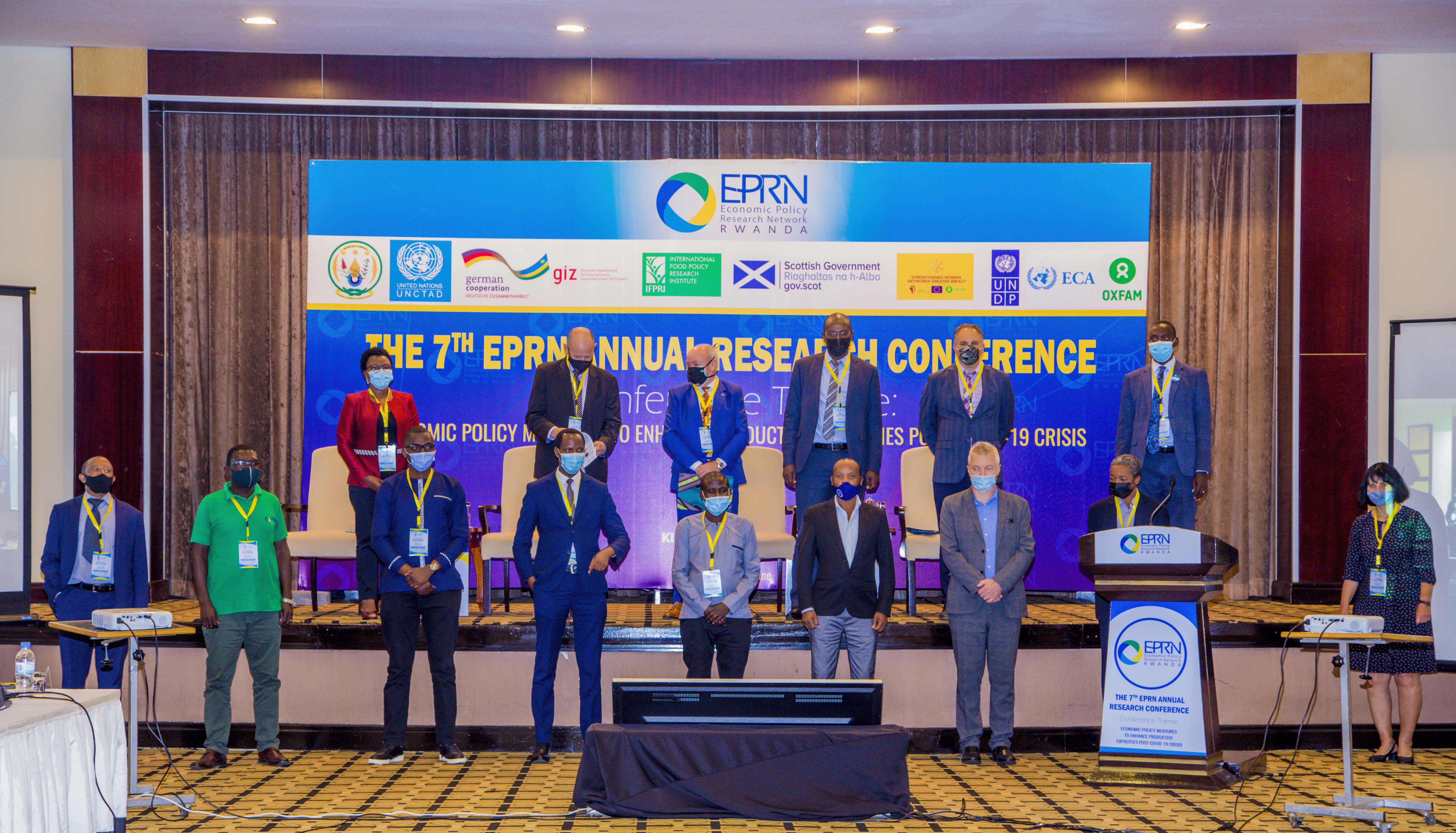A practical training on ““Introduction to SPSS...
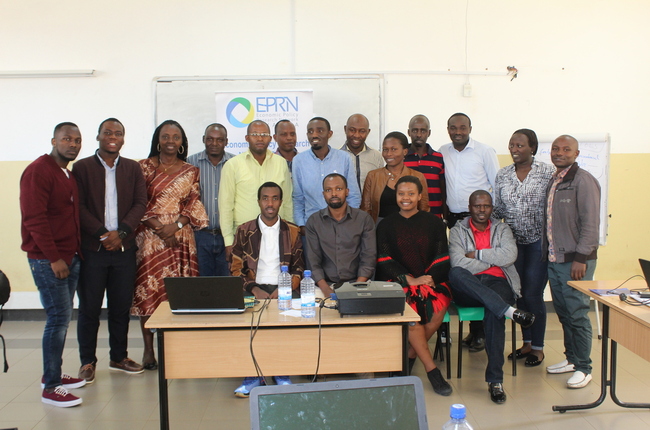
A practical training on “Introduction to SPSS for statistical analysis” organized by EPRN took place at UR-CBE/Gikondo campus from 19-21 April 2019 (8am – 5pm). The trainer was Dr. Olivier HABIMANA , an expert in SPSS. SPSS is a software used for statistical analysis and also it is used as a Statistical Package for Social Sciences, a program used by thousands of private companies, public institutions, research institutes, academic organizations, individual researchers and analysts around the world to solve research problems, so all the participants were eager to learn more about this software.
During the training, Dr. Olivier took a participatory, practical, visual, and non-mathematical approach to SPSS. From creating questionnaires and importing spreadsheets to running regression models and reporting results, this course covers essential statistical analysis tools, with an emphasis on clarity, interpretation, communicability, and application. At the end of training, participants were able to Understand advanced use of features of SPSS, Answering micro and macroeconomic problems with statistical tools, Perform simple and multiple linear regression and interpret the results and test as well validate the assumptions of statistical methods.
Among participants were : University students, research fellows, independent Organizations, lecturers, and consultants. During the training, the exchange of comments and questions were encouraged and the trainer assisted everyone during the exercises by giving some detailed explanations. Most part of the training was the practical learning and exercises were given throughout to put in practice the few theories and understandings gained. During the training the groups’ assignments, the exchange of comments and questions were encouraged to be able to refine the work and the trainer assisted every group during the assignment by giving some rectifications.
The training was mostly practical. The analysis was performed on data mainly collected in Rwanda. The EICV survey data in its different components was extensively described, Transformed, analyzed and in the end different policy implications were discussed.
The training was very successful and participants showed high interest in using SPSS for Statistical analysis. As a result majority of them suggested that EPRN should conduct an Advanced training on SPSS for statistical analysis. Since this training covered only linear Regression analysis, it would be helpful to organize a follow-up training on using SPSS to analyse limited dependant variables and nonlinear relationships. This would cover, for-example, regression analysis of categorical variables, binary variables, censored data, etc





